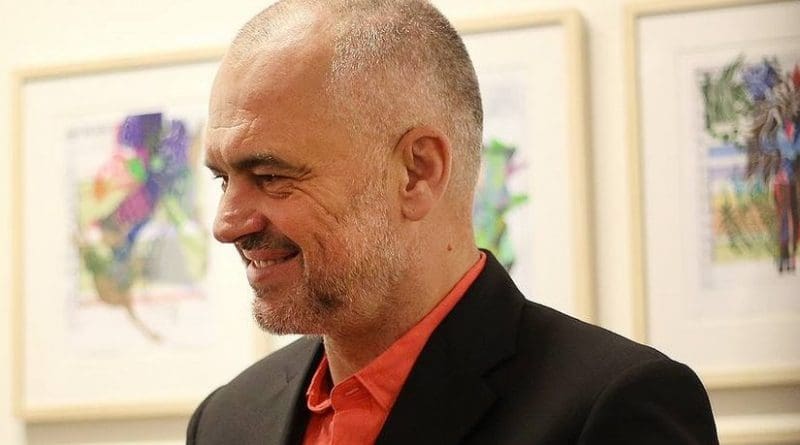Albania: PM Edi Rama Reveals New Cabinet
By Fatjona Mejdini
Prime Minister Edi Rama has announced his new cabinet, retaining several close allies, dissolving the European integration ministry and forming ministry for diaspora.
Albanian Prime Minister Edi Rama announced Albania’s new government Sunday. For the next four years, 13 ministers will aid him in running the country after his Socialist Party, PS, won an overwhelming majority in the June 25 elections.
The new cabinet has been downsized to 13, 11 of whom will be standard ministers, while two will be without portfolio. The outgoing cabinet contains 19 ministers, with 16 standard ministers and three ministers without portfolio.
In the new one, six ministries will be run by women while seven will be headed up by men.
The new deputy prime minister will be a woman, newly-elected Shkodra MP, Senida Mesi.
After almost two hours long speach in the Socialist Assembly, Rama also made the announcement that he was reshuffling key ministries.
One of the most significant changes he announced was the disillusion of the European integration ministry. A new state ministry to support Albanians living outside the nation’s borders was established, to be directed by former Prime Minister Pandeli Majko.
A new state ministry for the protection of entrepreneurs was created, which will be directed by the current head of Agency of Property Return and Compensation, Sonila Qato.
The new team will assume the official mandate in mid-September after the new parliament is constituted.
However, the core of the cabinet did not change in either structure or name. Foreign Minister Ditmir Bushati retained the position, while Fatmir Xhafaj remained the minister of the interior, and Arben Ahmetaj held onto the role of minister of finance. This ministry will also supervise the economy.
The ministry of education will still be run by Lindita Nikolla, and it will also absorb the sports and youth ministries. The ministry of health will take on responsibility for social care too, and will be headed by Orgerta Manastirliu.
The ministry of energy will merge with the ministry of infrastructure, which will be run by Damian Gjiknuri. The culture ministry will be directed by Mirela Kumbaro. Etilda Gjonajt will head the ministry of justice, while the ministry of defence will be led by Olta Xhacka.
The new minister for agriculture and rural development will be the former deputy prime minister, Niko Peleshi, while Blendi Klosi will be the minister of tourism and the environment.
Rama said that the keywords of his new government will be work and prosperity.
“This is the hardest mandate that I have ever had when it comes to responsibilities. We have to be super motivated and organised and govern together with citizens,” he said.
For the first time in the 25 years of pluralistic Albanian history, all the cabinet ministers belong to the same party, with no other party allies in the government.
This came as result of the fact that PS got 74 MPs out of 140 in the Parliament, eliminating the necessity to join part of a coalition in order to form the new government.
“We asked a mandate all for us and we got it. Now we have to rise above ourselves in order to be loyal to the citizens who trusted us,” Rama said.

